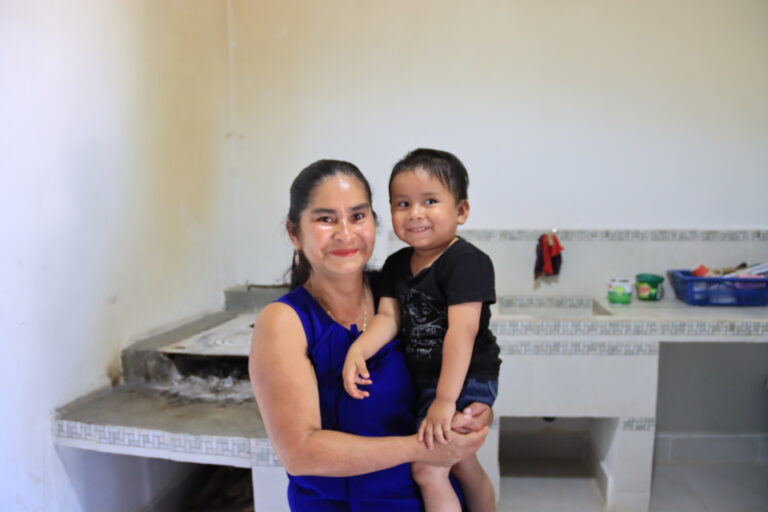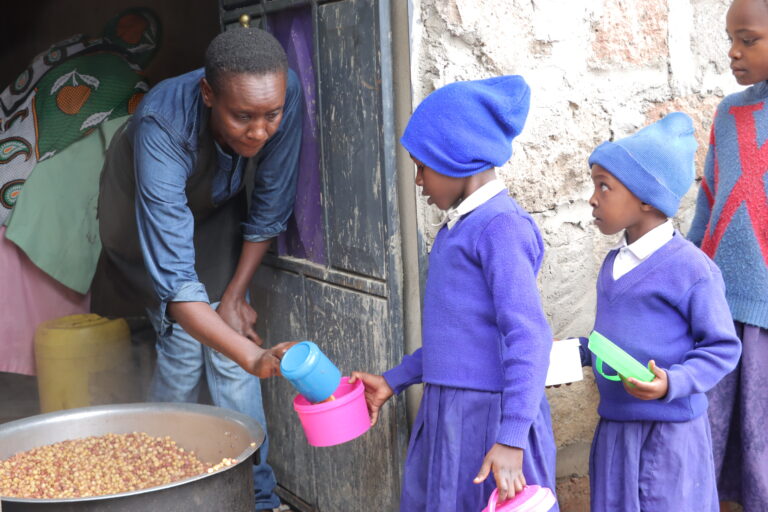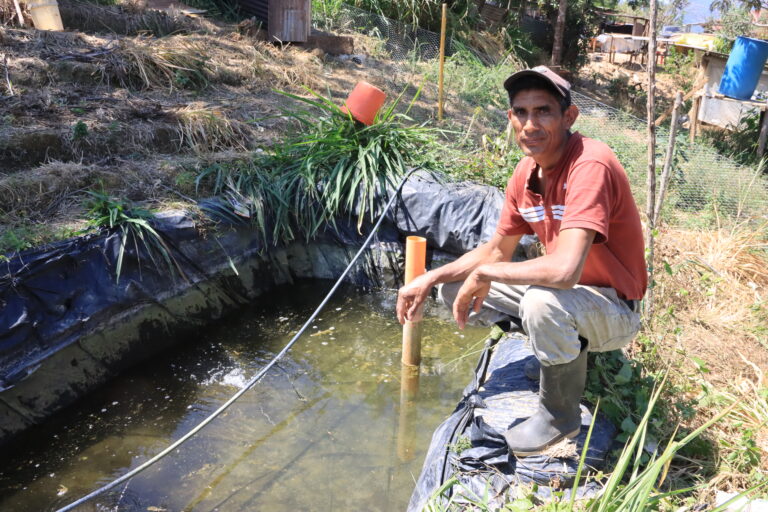Goat’s milk is rare in the central Rift Valley of Kenya, though demand is high. It is much more expensive than cow’s milk, because not many people in the area keep dairy goats.
Before 2003, life for Mrs. Muthumbi and her husband was difficult. They failed to pay school fees for their two children, and could not manage their basic needs. Mrs. Muthumbi says, “Our family depended heavily on growing maize and beans for food and income, but because of drought and lack of inputs, these crops did not help in solving our challenges.” For many years they were hungry and poor.
Land is scarce in their area, and many farmers rent additional land to grow crops. Mrs. Muthumbi says, “For a number of years we experienced drought … and we ended up making losses because of poor yields. We could not manage to settle debts with the land owners.”
In November 2003, Mrs. Muthumbi had a life-changing experience. She and seven other women farmers in her village received one female goat each through a program run by Egerton University. Then, she remembers, “A male goat was [passed] from one farmer to the next. My goat gave birth to twins and I passed one kid to another farmer.”
Kezia Wanjiku also raises goats in Mwingito. She says, “I always keep my goats in confinement to protect them from diseases, and also to get a good amount of milk.”
Mrs. Wanjiku says that dairy goats are easy to feed because they like to eat plants that are readily available. She feeds her goats with sweet potato vines, banana leaves, Napier grass and avocado leaves.
Dairy goat farmers earn money every day by selling goat’s milk. Because goat’s milk is important to their income, most goat farmers in Mwingito have strong opinions on how to feed their goats to produce high quality milk.
John Gitonga explains: “I avoid feeding my dairy goats with onions because experience has shown that onions make the milk … have a different taste. The milk also smells differently and customers normally do not like buying such milk.”
In Mwingito, it is believed that goat’s milk has a number of advantages over cow’s milk. Ruth Wairimu received her dairy goats through the same project as Mrs. Muthumbi. She believes that goat’s milk is particularly beneficial for children and the elderly.
She explains: “Goat’s milk reduces stress … We believe that goat’s milk is medicine, so we use it to help people with HIV and AIDS to improve their immunity.” She adds that it is also used to treat people with stomach ulcers.
Mrs. Muthumbi now has six dairy goats, each of which produces almost two liters of milk a day. She sells each liter for 75 US cents. Mrs. Muthumbi is happy that she rears goats, and her family is better off because of the money that she earns.
Mrs. Muthumbi explains: “I sell the kids when my goats have given birth. I am now able to pay school fees for my children. I also manage to pay rental fees for additional farming land where we grow other crops to complement our family food and income.”
Story Courtesy of Farm Radio Weekly




